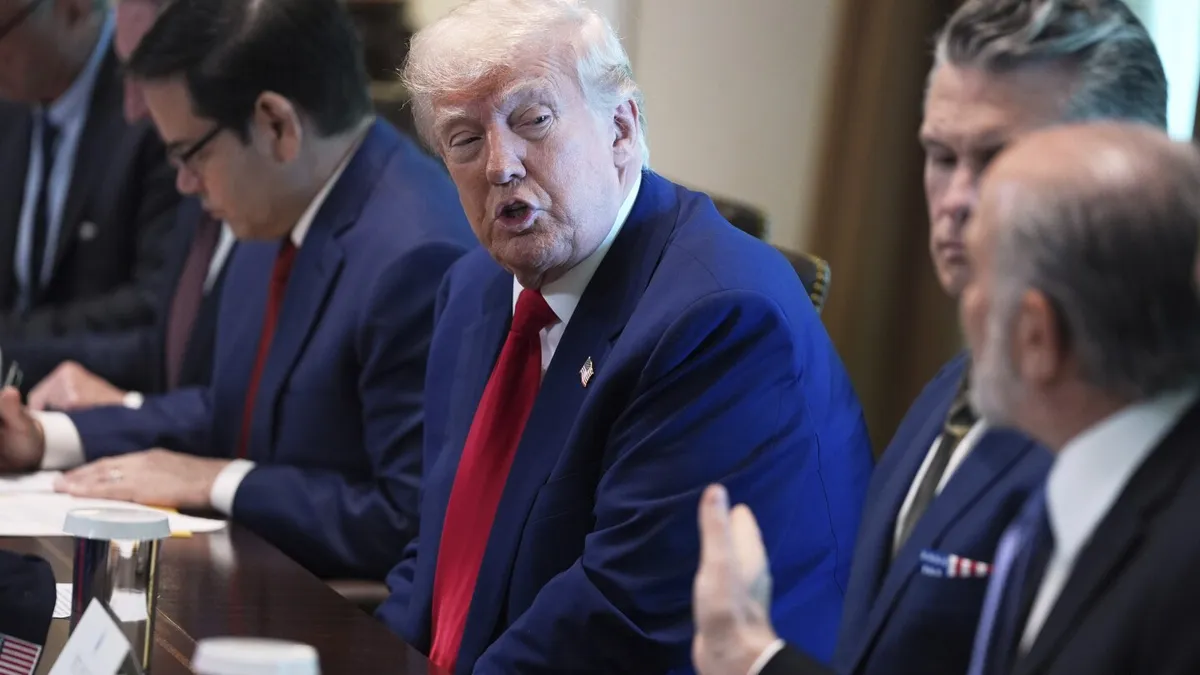
In a recent statement, President Donald Trump acknowledged that his tariffs could lead to fewer and more expensive products available in the United States. He noted that American children might end up with “two dolls instead of 30 dolls,” but he remained adamant that China would bear the brunt of his ongoing trade war. This admission comes amidst growing concerns over the U.S. economy, which shrank in the first quarter of the year.
Following a government report indicating a 0.3% contraction in the U.S. economy during the first three months of the year, Trump sought to reassure a wary public that his tariffs would not trigger a recession. He quickly shifted the blame to his predecessor, Joe Biden, claiming that his administration’s policies were responsible for any economic setbacks. During a Cabinet meeting, he asserted that the tariffs were causing significant difficulties for China, stating, “Their factories are not doing business.”
In a hypothetical scenario, Trump suggested that the tariffs could lead to a situation where children have to settle for fewer toys, saying, “Maybe the two dolls will cost a couple bucks more than they would normally.” His remarks came after the Commerce Department's report, which revealed a surge in imports as businesses rushed to stock up ahead of impending tariffs on goods like autos, steel, and aluminum.
The economic contraction has provided Democrats with ammunition to argue that Trump’s policies could push the economy into a recession. They pointed out that despite a healthy unemployment rate of 4.2%, there are signs that the economy is losing momentum shortly after Trump’s return to office. Rep. Suzan DelBene of Washington state stated, “We’ve only seen the beginning of the dangerous impacts from Trump’s random policies,” emphasizing the reliance of U.S. manufacturers on Chinese parts.
While Trump attempted to highlight new corporate investments in the U.S. as a sign of economic strength, his message has been met with skepticism. He pointed to investments from major companies like Nvidia, Apple, and Johnson & Johnson as indicators of upcoming prosperity. However, critics argue that the administration's mixed messages and reliance on tariff revenues for tax cuts create confusion regarding its economic strategy.
Trump expressed pride in what he called an aggressive first 100 days back in office, which included significant layoffs of federal workers and the initiation of a trade war marked by a staggering 145% in new tariffs against China. He also attempted to cast blame for the stock market's downturn on Biden, despite the former president leaving office months ago. “This is Biden’s Stock Market, not Trump’s,” he stated on his social media platform.
As Trump celebrated his 100th day in office, he sought to frame the economic landscape positively, despite the GDP report raising concerns. Commerce Secretary Howard Lutnick discussed recent investments, like those from Taiwan Semiconductor Manufacturing Co., which were initiated during Trump’s first term but continued under Biden’s administration. Critics argue that Trump’s dismissal of Biden’s contributions to economic stability overlooks the foundation laid before his return to office.
The ongoing debate highlights the critical need for stability and certainty in economic policy. As DelBene noted, “A strong economy needs stability and certainty.” The discord in Trump's economic messaging and the potential consequences of his tariff policies continue to fuel discussions about the future direction of the U.S. economy.